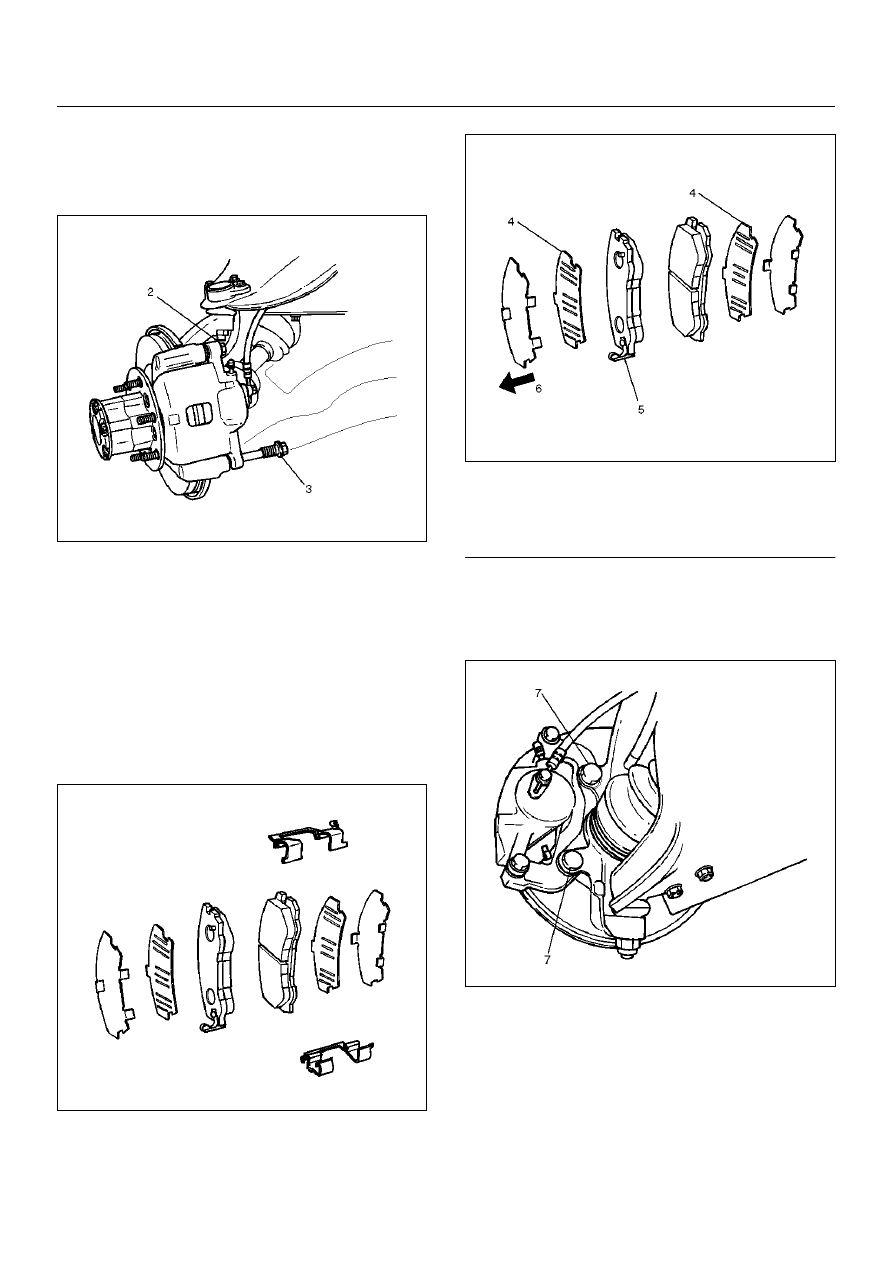Opel Frontera UE. Manual - part 138

POWER-ASSISTED BRAKE SYSTEM
5C–37
4. Since the brake fluid flows out from the connecting
coupler, place a drain pan under the vehicle.
5. Remove guide bolt (2).
6. Remove lock bolt (3).
302RW010
7. Remove caliper assembly.
8. Remove support bracket with pad assembly and
take care not to damage the flexible brake hose
when removing the support bracket.
9. Remove pad assembly with shim and mark the
lining locations if they are to be reinstalled.
10. Remove clip.
Installation
1. Install clip.
302RS005
2. Apply special grease (approximately 0.2 g) to both
contacting surfaces of the inner shims (4). Wipe off
extruded grease after installing. Install pad
assembly with shim.
302RW011
Legend
EndOFCallout
3. Install support bracket and tighten the bolt (7) to the
specified torque.
Torque: 155 N·m (15.8 kg·m/115 lbft)
302RW012
4. Install caliper assembly.
5. Install lock bolt (9) and guide bolt (8) and tighten the
bolt to the specified torque.
Torque: 74 N·m (7.5 kg·m/54 lbft)
(4) Inner Shim
(5) Wear Indicator
(6) Inner Side